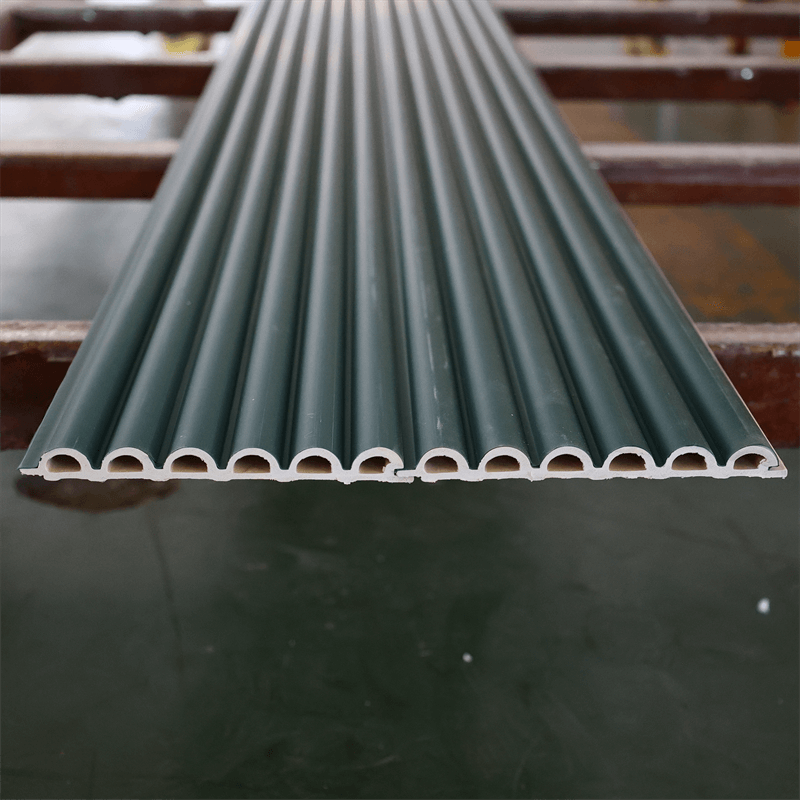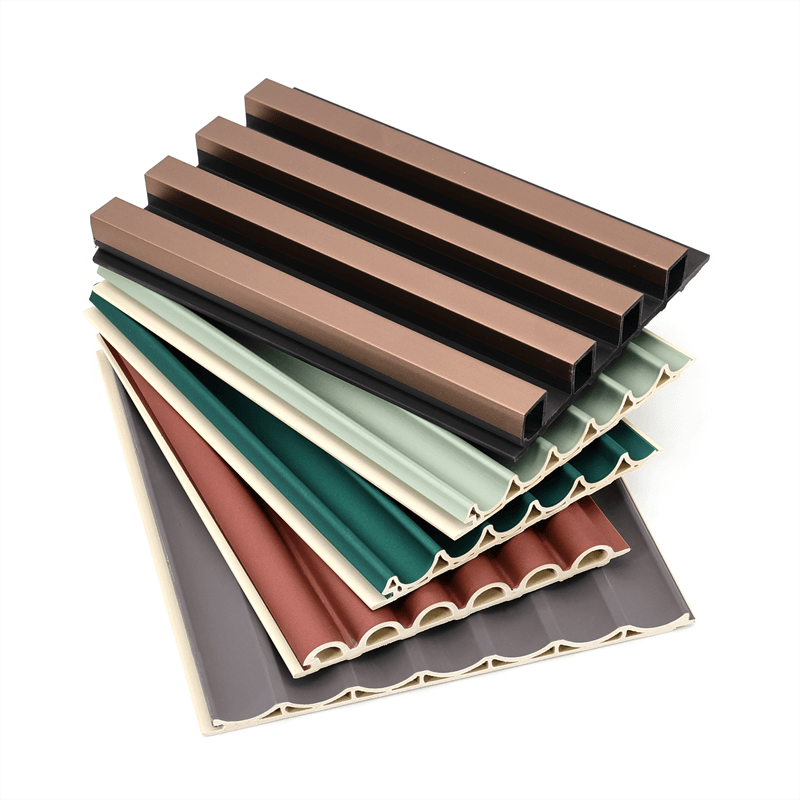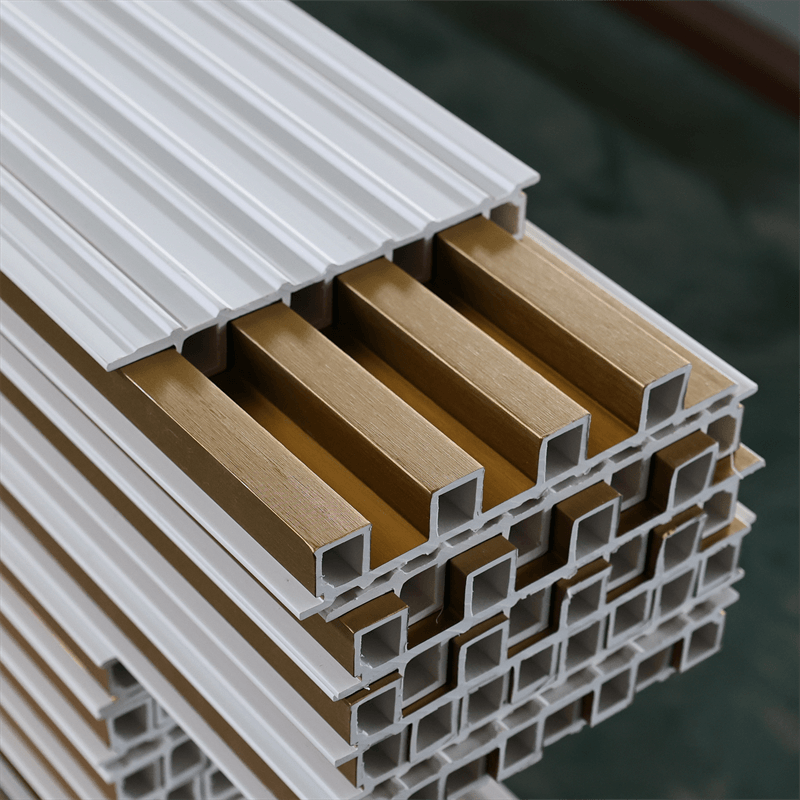In today’s world, energy efficiency is a top priority for homeowners. It not only helps reduce energy consumption and carbon footprint but also leads to significant cost savings in the long run.
WPC (Wood-Plastic Composite) wall panels offer an innovative solution to improve the energy efficiency of homes.
In this essay, we will explore the benefits of using WPC wall panels in terms of energy efficiency and how they can contribute to a more sustainable and comfortable living environment.
We will discuss four key aspects: thermal insulation, air leakage reduction, moisture control, and eco-friendly materials.
I. Thermal Insulation:
One of the primary benefits of WPC wall panels is their excellent thermal insulation properties. By installing WPC panels, homeowners can experience the following advantages:
- Enhanced Thermal Resistance: WPC panels have high thermal resistance, which helps to prevent heat transfer between the interior and exterior of the home. This means that during hot summer months, the panels can help keep the interior cooler, while in cold winter months, they can help retain heat inside the home, reducing the reliance on artificial heating and cooling systems.
- Reduced Energy Consumption: By improving thermal insulation, WPC wall panels can significantly reduce the need for heating and cooling, leading to lower energy consumption. This translates into cost savings on energy bills and a reduced environmental impact.
- Increased Comfort: Proper thermal insulation provided by WPC panels creates a more comfortable living environment by maintaining a consistent indoor temperature throughout the year. Homeowners can enjoy a cozy and comfortable space without experiencing extreme temperature fluctuations.
II. Air Leakage Reduction:
Air leakage is a common issue in homes, which leads to energy wastage and compromises the overall energy efficiency. WPC wall panels can effectively address this problem:
- Tighter Building Envelope: WPC panels help create a tighter building envelope by reducing air leakage through walls. Their installation provides a continuous barrier that minimizes drafts and air infiltration, ensuring a more controlled indoor environment.
- Improved HVAC Efficiency: By reducing air leakage, WPC panels help HVAC (Heating, Ventilation, and Air Conditioning) systems operate more efficiently. These systems can better maintain desired indoor temperatures, resulting in reduced energy consumption and improved energy efficiency.
- Enhanced Indoor Air Quality: Minimizing air leakage through WPC wall panels also contributes to better indoor air quality. By reducing the infiltration of outdoor pollutants, allergens, and dust, homeowners can enjoy a healthier living environment.
III. Moisture Control:
Moisture control is vital for maintaining a healthy and sustainable home. WPC wall panels offer effective moisture management solutions:
- Moisture Resistance: WPC panels are highly moisture-resistant, making them an ideal choice for areas prone to humidity, such as bathrooms, kitchens, or basements. Unlike traditional wall cladding materials, WPC panels do not warp, rot, or degrade when exposed to moisture, ensuring long-term durability and performance.
- Preventing Mold and Mildew: The moisture-resistant properties of WPC panels help prevent the growth of mold and mildew, which can be detrimental to both the structural integrity of the home and the health of its occupants. This creates a healthier living environment and reduces the need for costly mold remediation in the future.
- Protection Against Water Damage: In case of water leaks or spills, WPC panels act as an additional layer of protection, safeguarding the underlying structure from water damage. This provides homeowners with peace of mind and avoids costly repairs.
IV. Eco-Friendly Materials:
WPC wall panels are made from a combination of recycled wood fibers and plastic, making them an environmentally friendly choice for homeowners:
- Utilization of Recycled Materials: WPC panels utilize recycled wood fibers and plastic, reducing the demand for virgin materials. By using recycled content, WPC panels help conserve natural resources and minimize waste.
- Reduced Carbon Footprint: The production of WPC panels typically involves less energy and emits fewer greenhouse gases compared to traditional wall cladding materials. By opting for WPC panels, homeowners can reduce their carbon footprint and contribute to a more sustainable future.
- Longevity and Recyclability: WPC panels have a long lifespan and can be recycled at the end of their useful life. This further minimizes environmental impact and supports a circular economy.
WPC wall panels offer a range of benefits when it comes to improving the energy efficiency of homes.
From thermal insulation to air leakage reduction, moisture control, and the use of eco-friendly materials, WPC panels can significantly contribute to a more sustainable and comfortable living environment.

By installing WPC panels, homeowners can enjoy lower energy consumption, reduced energy bills, improved indoor comfort, and a reduced environmental impact.
Embrace the advantages of WPC wall panels and take a step towards creating an energy-efficient and environmentally conscious home.
In conclusion, WPC wall panels provide homeowners with an effective means of improving the energy efficiency of their homes.
With their excellent thermal insulation properties, they help maintain a comfortable indoor temperature while reducing reliance on heating and cooling systems.
By minimizing air leakage, WPC panels create a tighter building envelope, resulting in lower energy consumption and improved HVAC efficiency.
Additionally, their moisture-resistant nature ensures effective moisture control, preventing issues such as mold and water damage.
Lastly, WPC panels are made from eco-friendly materials, utilizing recycled content and reducing the carbon footprint.
By incorporating WPC wall panels into home design, homeowners can enjoy a range of benefits, including reduced energy bills, enhanced indoor comfort, improved indoor air quality, and a reduced environmental impact. The investment in WPC panels not only contributes to cost savings but also promotes sustainability and responsible resource usage.
As energy efficiency becomes increasingly important in the pursuit of sustainable living, WPC wall panels offer an innovative and eco-friendly solution.
Embrace the advantages of WPC panels and transform your home into an energy-efficient, comfortable, and environmentally conscious space.


